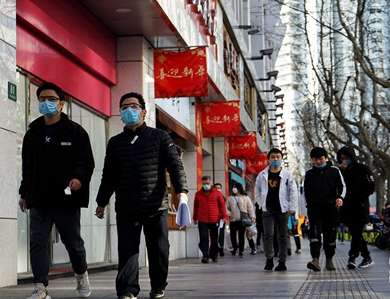
(File photo: Global Times)
China's domestic tourism sector is starting to show signs of recovery with famous scenic spots reopening to greet sightseers, as the country has seen an easing of the coronavirus outbreak.
An industry analyst said there would be a recovery in one month, while the gloomy outlook of overseas markets may persist due to unsatisfactory control measures.
As an iconic scenic spot in Shanghai, the Oriental Pearl Tower will be reopened to visitors on Thursday, but it will implement strict measures to reduce the daily visitor flow to 50 percent of the approved capacity.
In Central China's Hunan Province, a total of 56 A-level scenic spots resumed operation as of March 5, according to the local government's department of culture and tourism.
Given that the epidemic in China has been easing, especially outside of the epicenter Hubei Province, "the domestic tourism sector would see a revival in about a month," said Jia Jianqiang, CEO of 6renyou, a high-end tourism agency in Beijing.
Meanwhile, the overseas market may remain in the doldrums until after June due to the spreading virus across the world and unsatisfactory control measures there, Jia told the Global Times on Wednesday.
Statistics from the World Travel and Tourism Council (WTTC) showed that Chinese outbound travel and tourism spending has grown sevenfold in the last 10 years, with a staggering annual growth of 21.7 percent. Each year the global travel and tourism sector contributes 10.4 percent to global GDP and one in 10 jobs, read an online statement of WTTC.
As one of the hardest-hit industries, tourism sector went into a freeze in the virus outbreak. "We had zero income in February," Jia said. His company launched live-streaming broadcasts during the month in a bid to expand potential customer base.
Online travel services provider Trip.com Group initiated a tourism recovery project on March 5 with over 100 travel destinations and an investment of 1 billion yuan ($144 million), aiming to promote industry resumption on the premise of sound epidemic prevention measures.
Trip.com launched a series of "future travel" products, including tens of thousands of hotels, over 1,000 travel routes and tickets for more than 300 scenic spots. Most of the products can be reserved for use throughout the year according to the actual situation, and there is an "easy return" service. The series offers discounts of 20-60 percent.
Governments have been rolling out measures to help the tourism industry get through the tough phase, including refunds of agencies' quality deposits. Beijing plans to offer 345 million yuan to subsidize the industry.


